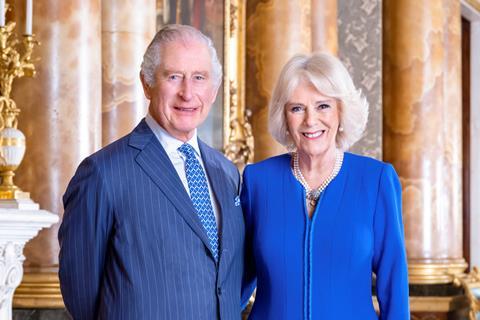Writer Rachel Mataraki explores our love of the monarchy and asks if there’s something better for us to prize.

Europe may boast a long history of kings and queens, but the curiosity around royalty is worldwide. Jada Pinkett Smith’s Netflix show African Queens tells the stories of a few of the many queens in Africa. While in Asia, Emperors are regularly depicted in Chinese, Japanese and Korean dramas. When I was in Thailand in 2017 many of my Thai colleagues were wearing black for the whole year as a sign of respect and honour as they collectively mourned their King Bhumibol Aduldej, who passed away in October 2016.
Before Instagram and instant TikTok fame existed, there were plays, tapestries, stories and even rhymes telling of battles and plots to take down the latest powerful monarch. In the 20th century the “media circus” surrounded the British monarchy. Love them or hate them, you couldn’t avoid them. There is both a voyeuristic fascination with the everyday lives of our royalty and a frustration with the negative legacies or privilege, power and colonial injustice. They reflect our collective history both good and bad.
There is both a voyeuristic fascination with the everyday lives of our royalty and a frustration with the negative legacies or privilege, power and colonial injustice.
Research by Lynne McCutcheon suggests that there are different levels of celebrity worship. On the soft end of the scale - reading posts and articles and at the extreme end - an obsessive identification with them. I’ve wondered whether we end up projecting both our desires for security and our own weaknesses onto the Royal Family making identification with their human side very appealing.
So, what of the Biblical kings and queens? Like a binge worthy drama cast, they are an intense bunch. The most famous heroes of the Old Testament include King Saul the first king, King David, who starts well, has a wobble but admits his cheating and is known as a man after God’s heart. Then way before any female PM, Queen Esther strategically positions herself with courage and chutzpah to save her nation. King Solomon, like his dad, starts well, finishes the Temple, but ultimately gets distracted by melancholy and women. Queen Athaliah of Judah - was accused of murdering children, including her own grandchildren, and there are chapters full of kings that went off the rails.
Read more on The Royals
Coronation Special: ‘The coronation is inescapably Christian’
Is King Charles III a ‘real’ Christian? A look at the monarch’s faith
The Queen’s style was iconic, but there’s a heart-warming reason she always wore bright colours
In 1 Samuel:8, the people were so busy looking at everyone else’s status updates that they forgot their own responsibilities to Yahweh. They wanted a dominating, despotic king like the King of Egypt, or Assyria. They thought their problems would be solved by a person and for better or worse, God gave them what they asked for. Israel was supposed to be set apart to be a nation that trusted in God and not in the trappings of power. What they didn’t realise was that the power was not in the office of king, but in the heart of the connection of the leader to the Creator of the Universe.
Human kingship, impressive as it is, can’t replace the purity of a heart that is seeking the good of its people.
God was never confused in his idea of kingship - just read Deuteronomy 17 if you’re not sure. He is both sovereign (noun) and sovereign (verb). He lovingly lays out the characteristics he desires; humility, loyalty, obedience, someone who knows the law and is willing to sacrifice for the sake of the people. In effect, he is already pointing to Jesus. Human kingship, impressive as it is, can’t replace the purity of a heart that is seeking the good of its people.
I hope that as we enjoy the coronation we can pray for King Charles to have a heart that is for the people in true humility and as we turn our gaze away from social media and screen time, that we too can say: “All hail King Jesus” as we bow before the King of Kings.

































No comments yet